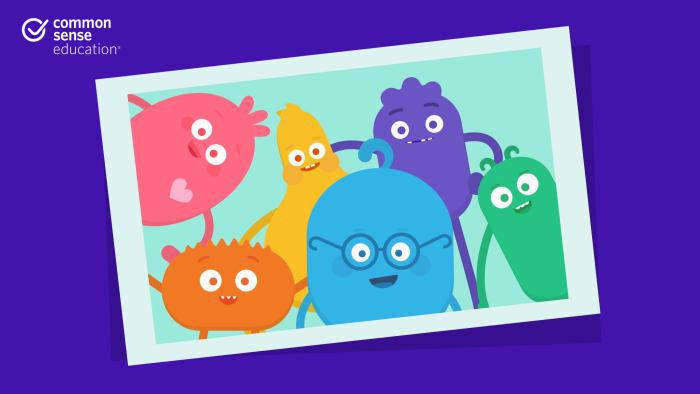This post contains extensive resources for you to promote Digital Citizenship Week in your classroom, school, or home. For 2024 Digital Citizenship Week is October 14th through the 18th, but you do not have to wait until then to teach digital citizenship. With the increased prevalence of social media pervading the lives of our students, and the increase in online scams and cyber threats, anytime is a good opportunity to educate students of all ages in digital citizenship.
The research on the impact of social media and the internet on young people is extensive and convincing. Impacts include but are not limited to: cyber bullying (1), vaping use (2), depression (3), physical activity (4), body image disorders (5), and social-emotional wellness (6).
According to the American Academy of Pediatrics “Studies show that the quality and the consistency of an adolescent’s sleep is just as important to their overall health as the amount. Using a screen can affect the quality of your child’s sleep by making them more alert and raising their heart rate, especially if your child is playing an action-packed video game or watching something intense. This can make it harder for them to fall asleep. The type of light given off by screens can also disrupt the production of a sleep hormone called melatonin.” They offer tips for parents to help with healthy media habits.
Fortunately there are extensive free Digital Citizenship resources available to educators to effectively teach digital citizenship to students at all grade levels.
Common Sense Education pioneered Digital Citizenship Week over ten years ago and has excellent resources for educators and parents including award winning lesson plans, a video about digital citizenship, and a family engagement toolkit.
Technology giant Google has created Be Internet Awesome, a comprehensive program for all grades with ISTE aligned curriculum, interactive challenges for younger students with four games of important lessons called Interland, and a family pledge of commitments to support students at home.
The Internet Keep Safe Coalition (iKeepSafe) mission is “to provide a safe digital landscape for children, schools, and families by supporting the protection of student privacy, while advancing learning in a digital culture.” iKeepSafe offers comprehensive resources for educators including digital citizenship, FERPA and COPPA training.
Connect Safely provides in-depth guides for educators and parents on Education Technology, Social Media, and Creativity and Copyright. Topics include AR, VR, Metaverse, Gaming, Misinformation, Safety, and Cyber Bullying.
Nearpod offers extensive interactive digital citizenship lessons that engage students using their excellent platform.
Apple provides detailed instructions for setting parental controls on iPhones and iPads.
For Android devices, Google also has detailed parental controls.
For WiFi management to restrict times and access, Consumer Reports offers instructions.
For more specific and advanced resources for Cybersecurity, please visit this post.
References:
(1) Parris, L., Lannin, D. G., Hynes, K., & Yazedjian, A. (2022). Exploring social media rumination: associations with bullying, cyberbullying, and distress. Journal of interpersonal violence, 37(5-6), NP3041-NP3061.
(2) Lee, J. (2021). Association between social media use and vaping among Florida adolescents, 2019. Preventing Chronic Disease, 18.
(3) Primack, B. A., Shensa, A., Sidani, J. E., Escobar-Viera, C. G., & Fine, M. J. (2021). Temporal associations between social media use and depression. American journal of preventive medicine, 60(2), 179-188.
(4) Hudimova, A., Popových, I., Savchuk, O., Liashko, V., Pyslar, A., & Hrys, A. (2021). Research on the relationship between excessive use of social media and young athletes physical activity. Journal of Physical Education and Sport, 21(6), 3364-3373.
(5) Jiotsa, B., Naccache, B., Duval, M., Rocher, B., & Grall-Bronnec, M. (2021). Social media use and body image disorders: Association between frequency of comparing one’s own physical appearance to that of people being followed on social media and body dissatisfaction and drive for thinness. International journal of environmental research and public health, 18(6), 2880.
(6) Twenge, J. M. (2019). More time on technology, less happiness? Associations between digital-media use and psychological well-being. Current Directions in Psychological Science, 28(4), 372-379.


Leave a Reply